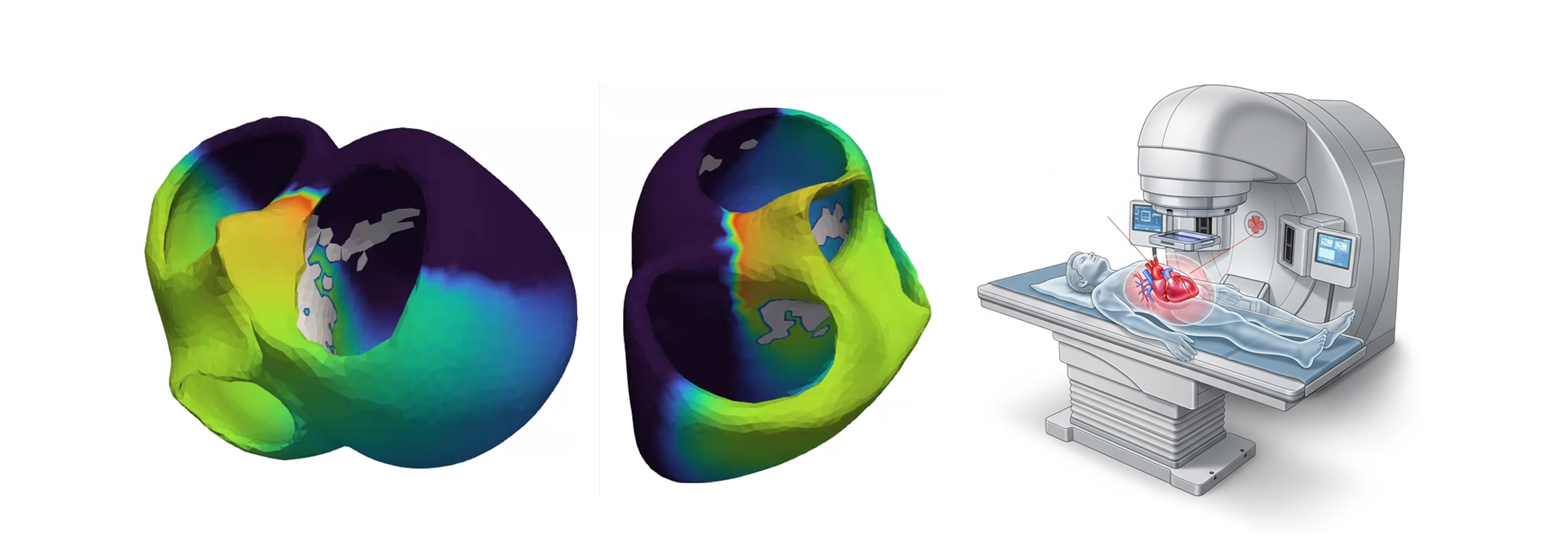“Artificial intelligence, digital cardiac twins, and real-time mapping will enable us to provide more precise, less invasive treatment options for patients with cardiac arrhythmias. We have developed and validated a real-time cardiac mapping system for planning and guiding proton therapy-based cardiac ablation”.
This is the main result of the Proton-ECGI project, led by Dr. Andreu Climent from the COR group at the ITACA Institute (Universitat Politècnica de València), which has successfully concluded after two years of development and scientific exploration.
This initiative has played a key role in the consolidation of a new line of research within the COR group, focused on the integration of cardiac electrophysiology, non-invasive imaging, and radiotherapy technologies.
Impact of the project
Proton-ECGI represents a step forward in imagining the future of non-invasive cardiac ablation, a field with enormous potential to improve outcomes and increase access to care for millions of patients who currently cannot undergo conventional procedures.
“With Proton-ECGI, we’ve laid the groundwork to bring together advanced modeling and imaging techniques in a way that could one day make non-invasive ablation a clinical reality,” explains project lead Dr. Andreu Climent.
Proton-ECGI was funded through the 2022 Consolidación Investigadora programme by the Agencia Estatal de Investigación (AEI), (CNS2022-135512) within the framework of the Recovery, Transformation and Resilience Plan (PRTR), supported by Next Generation EU funds, and had a duration of 24 months.



